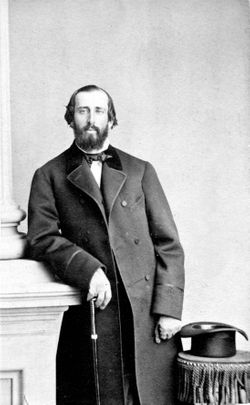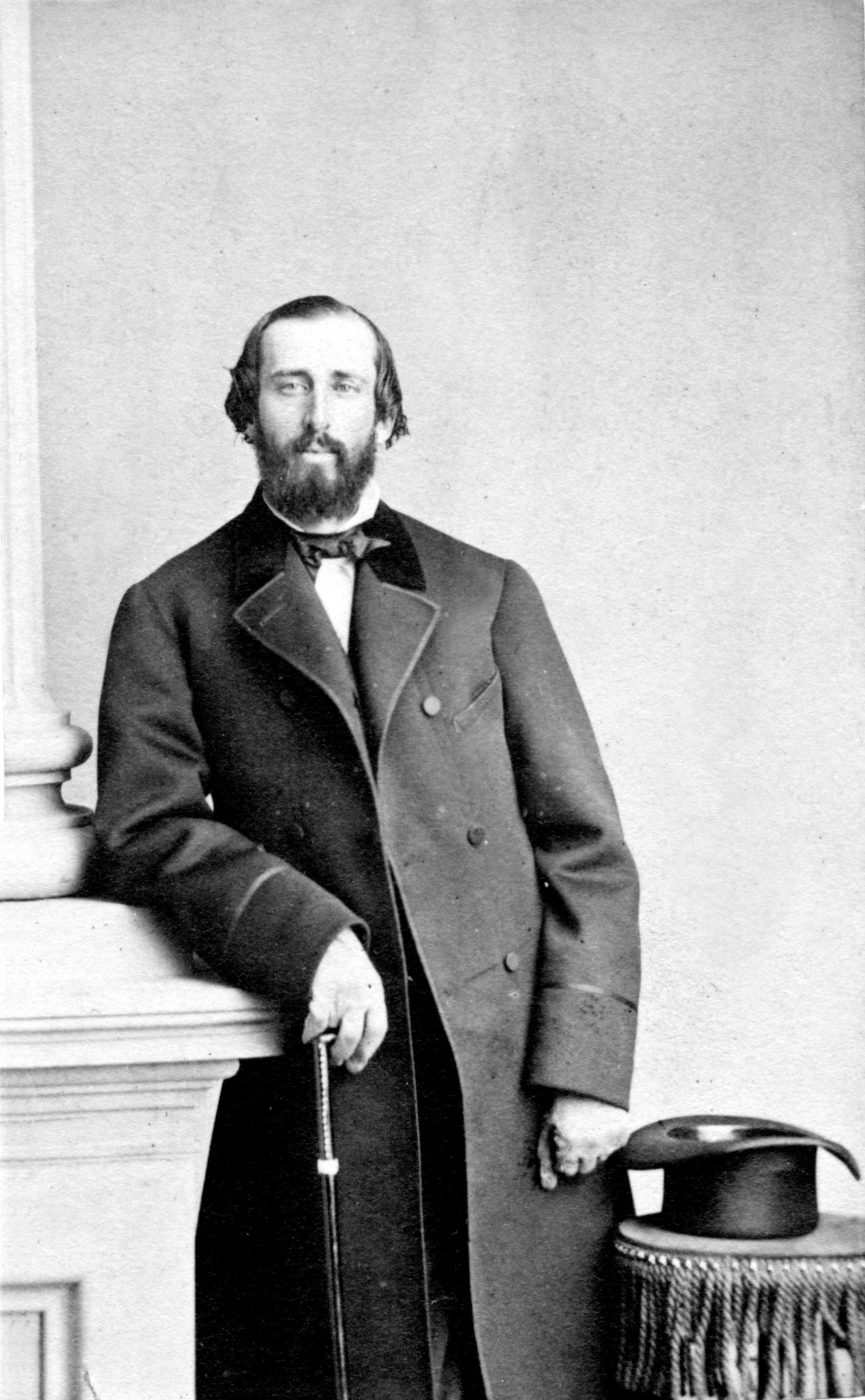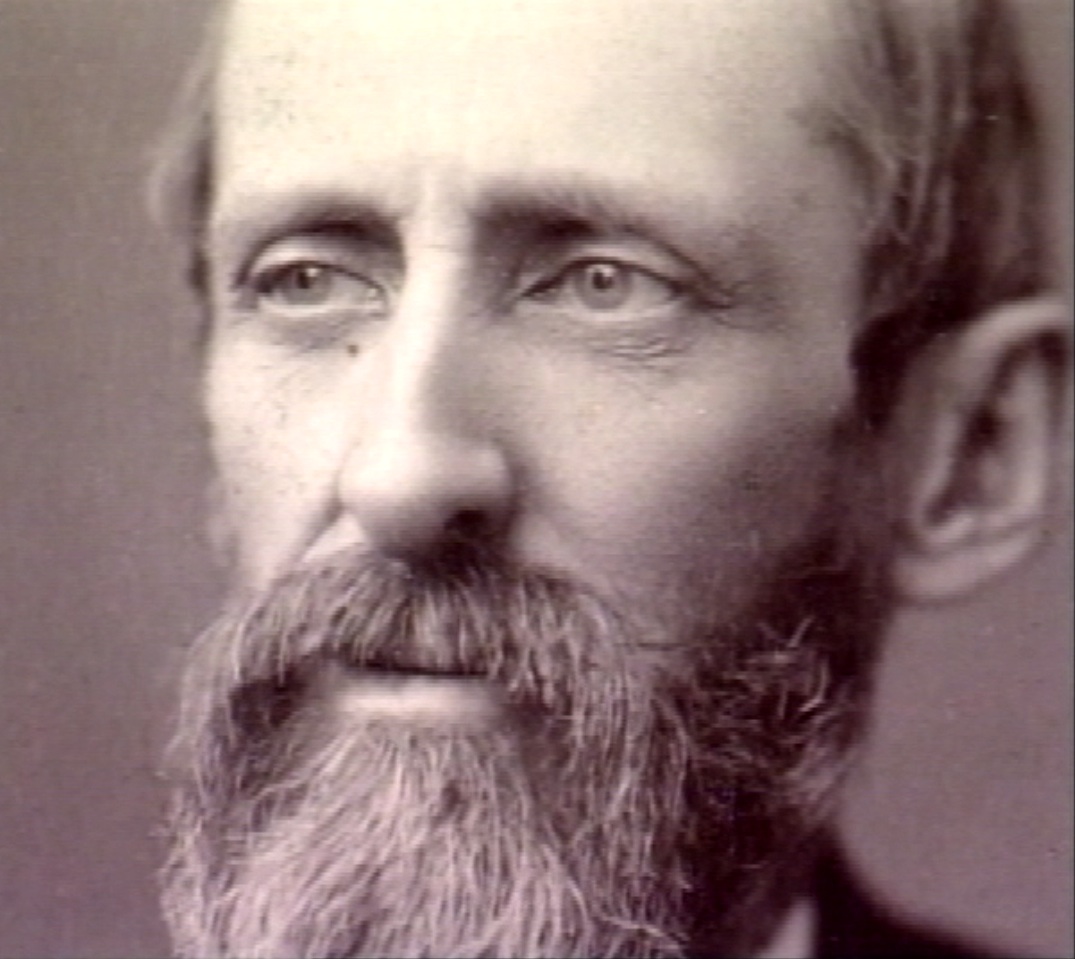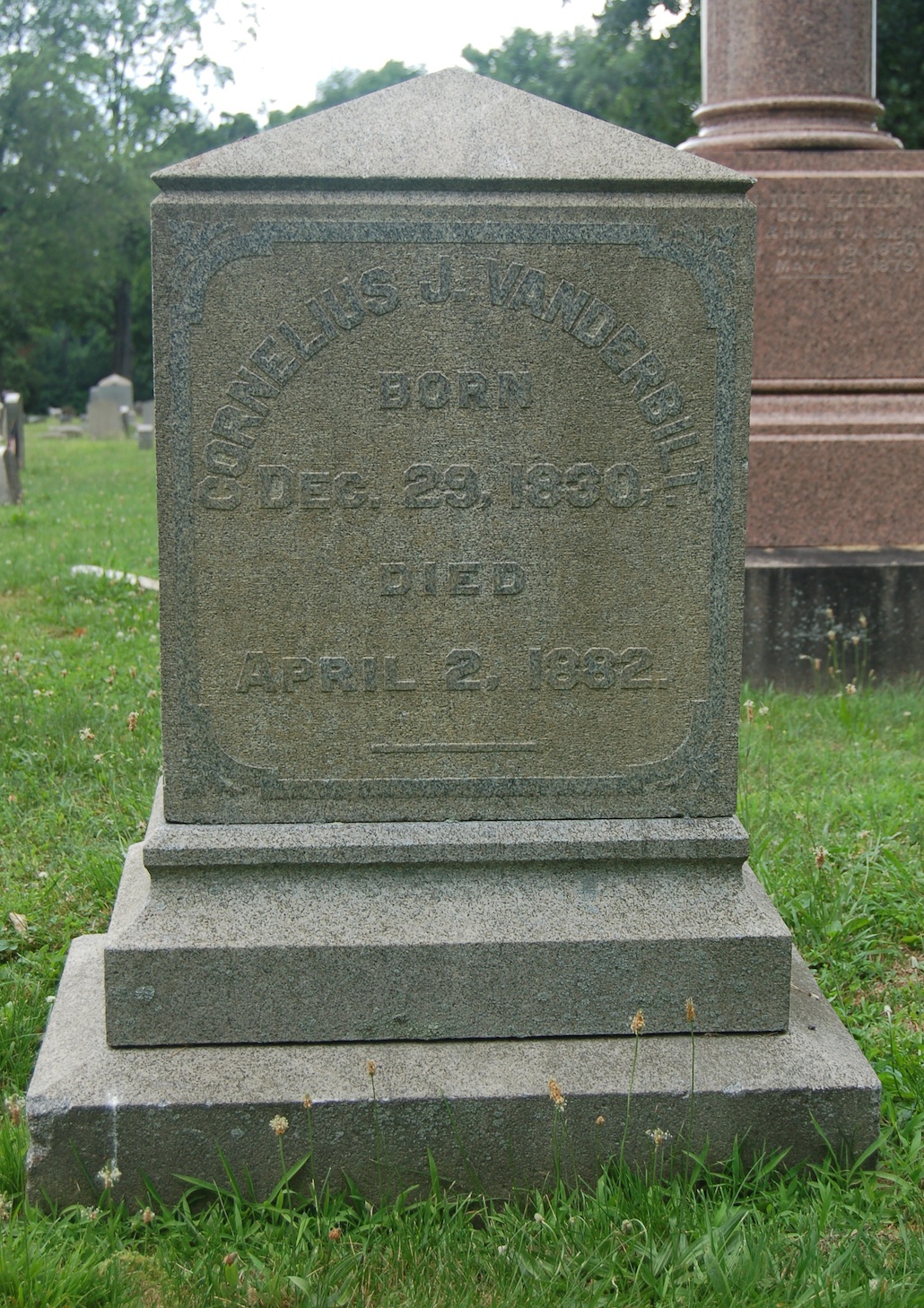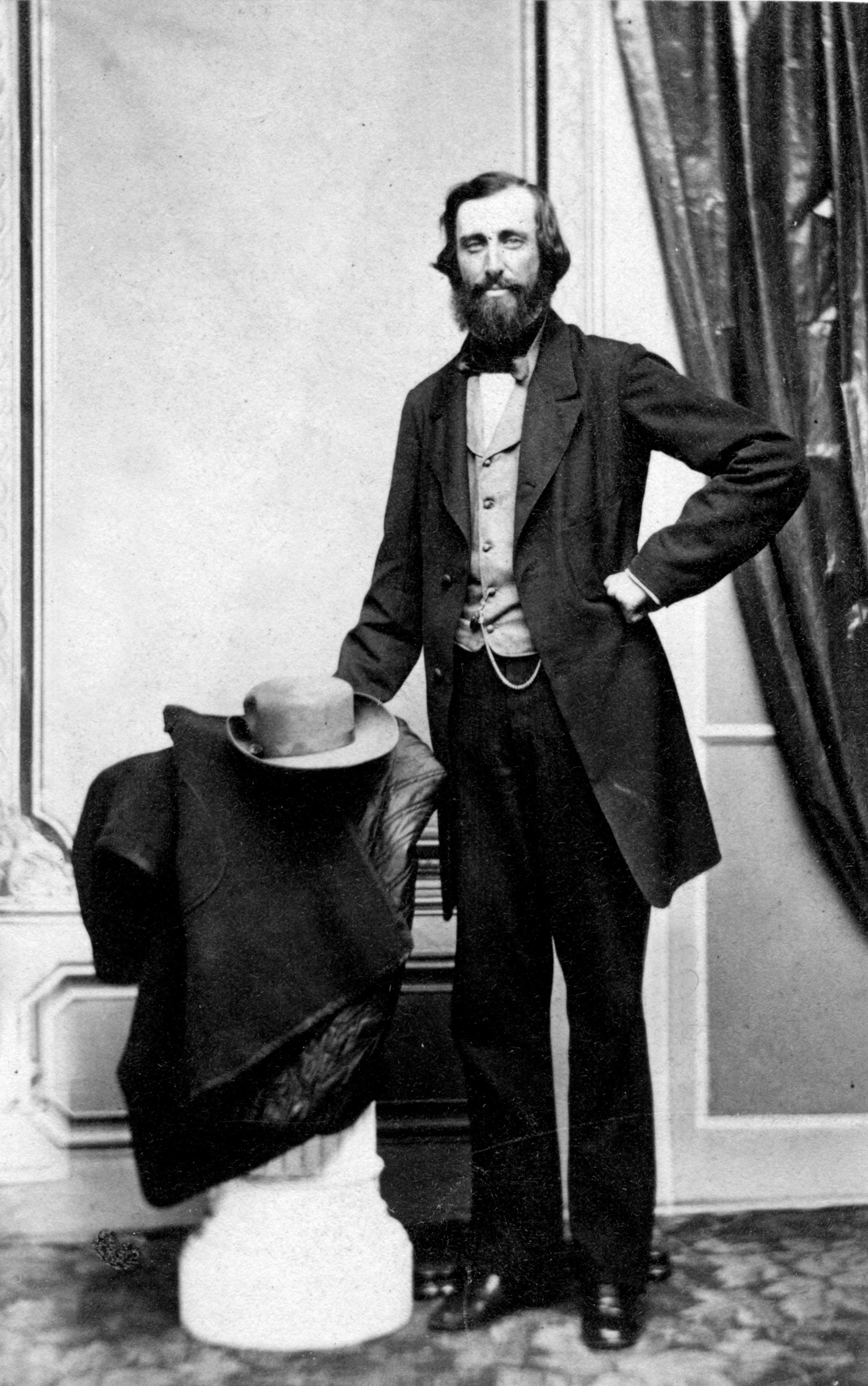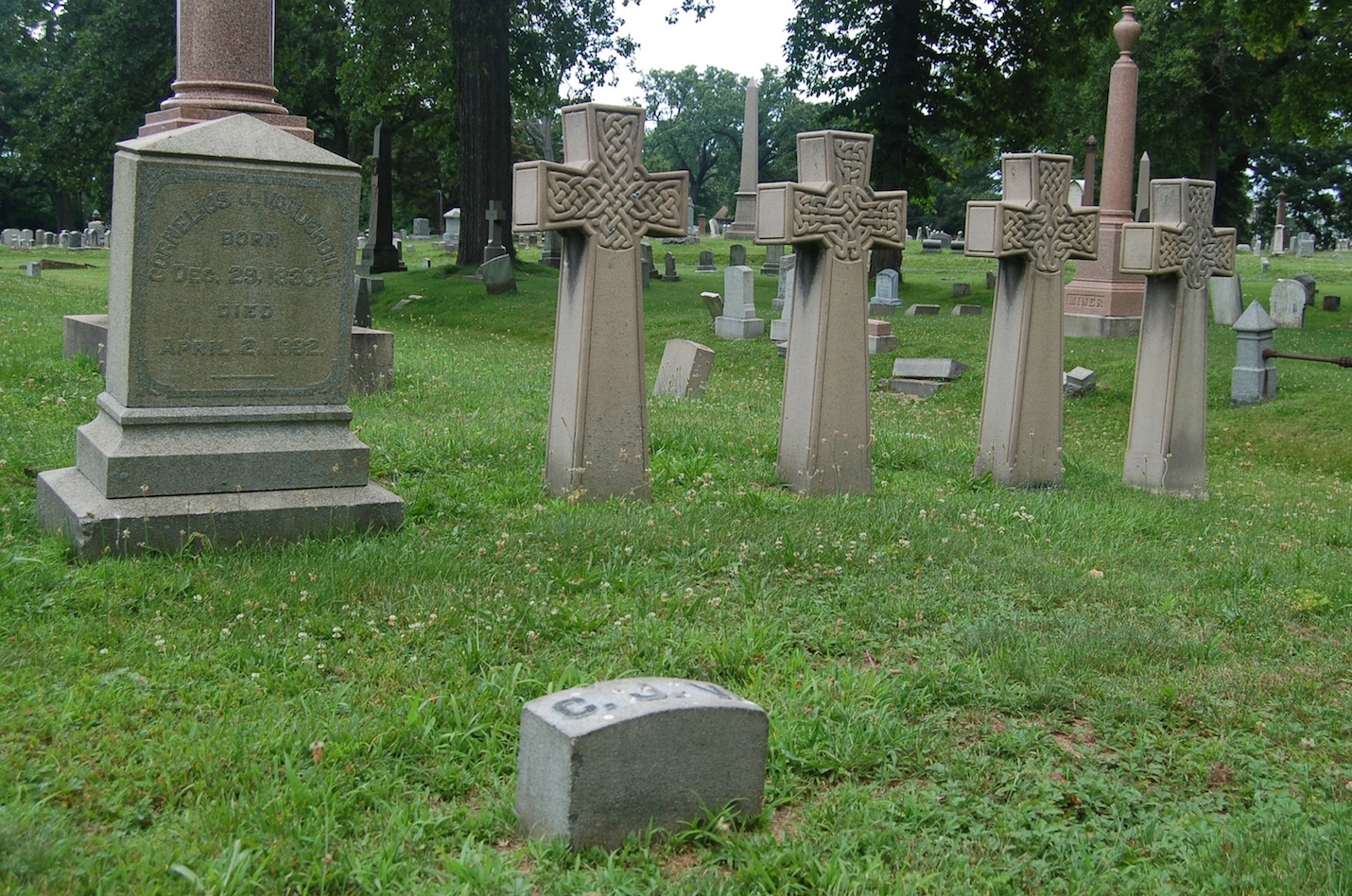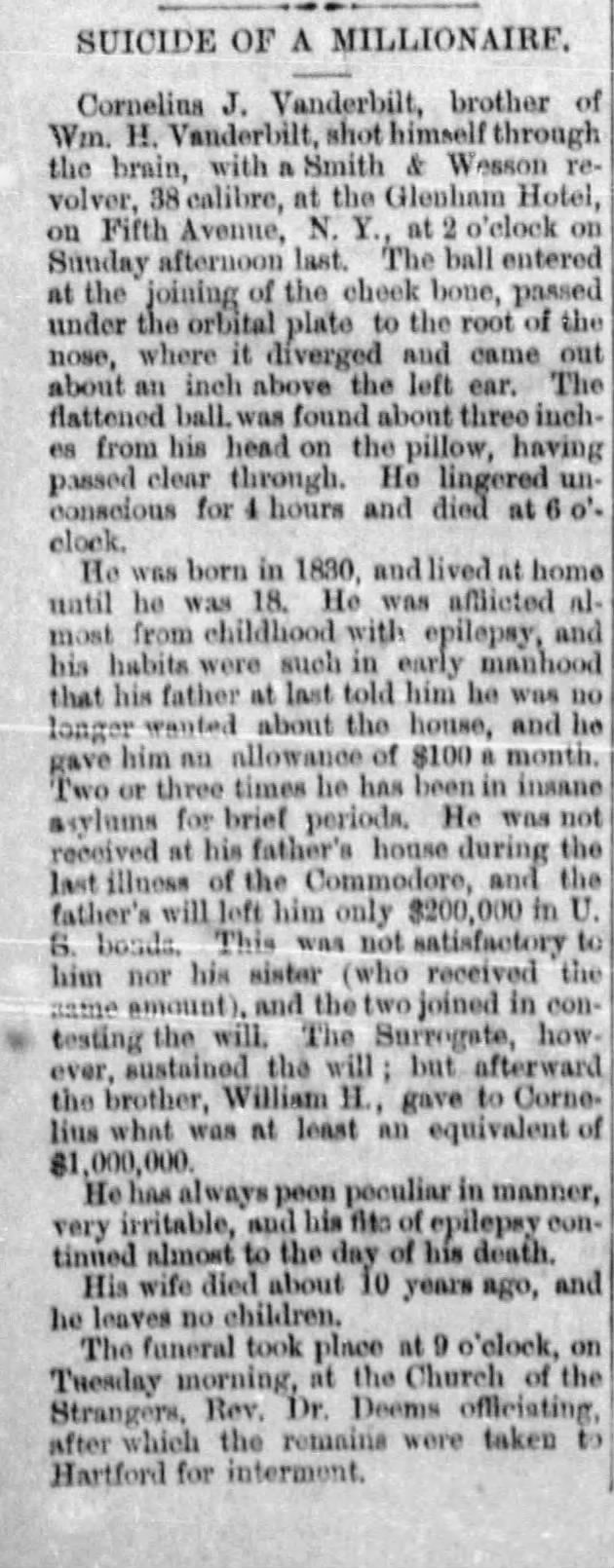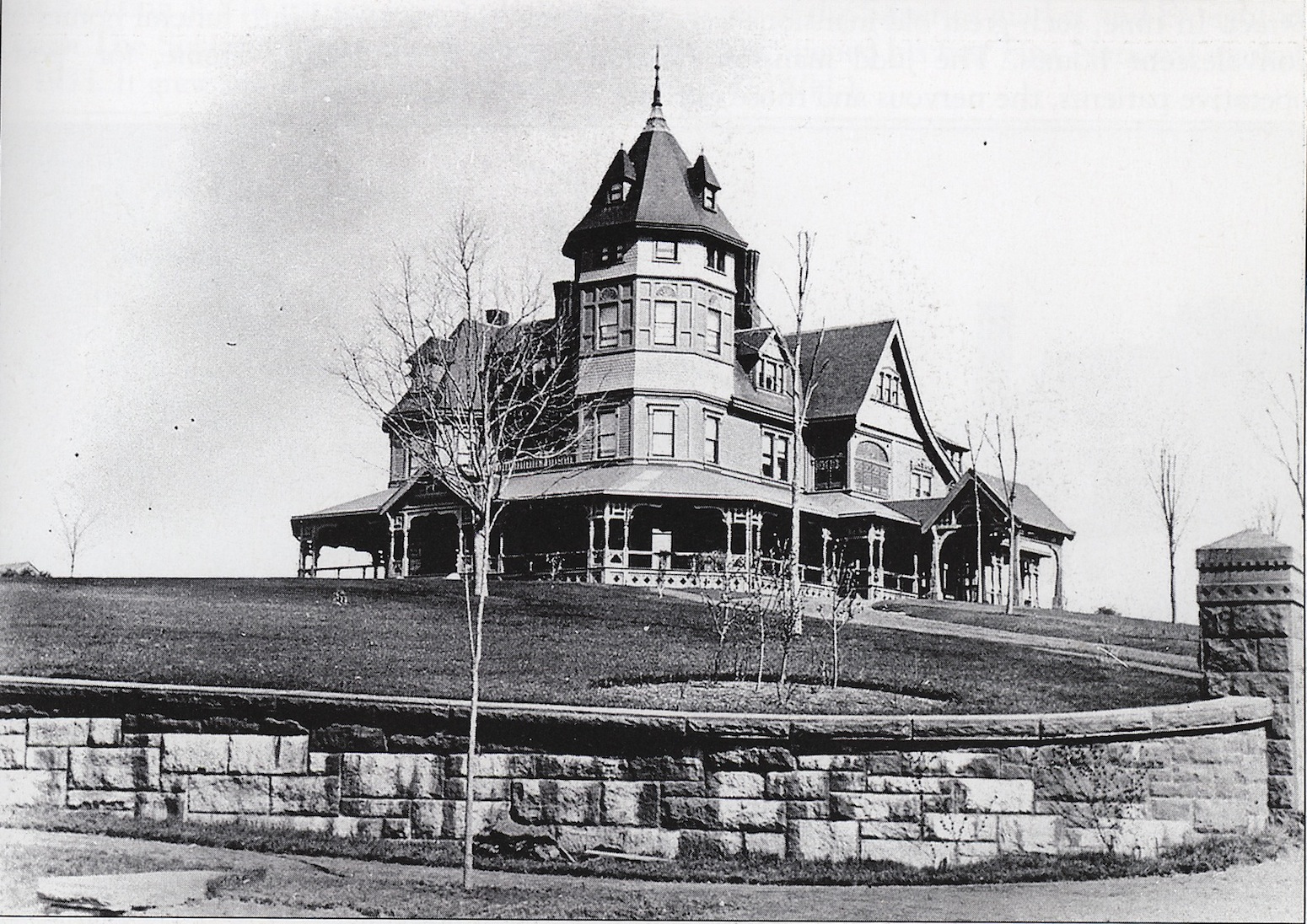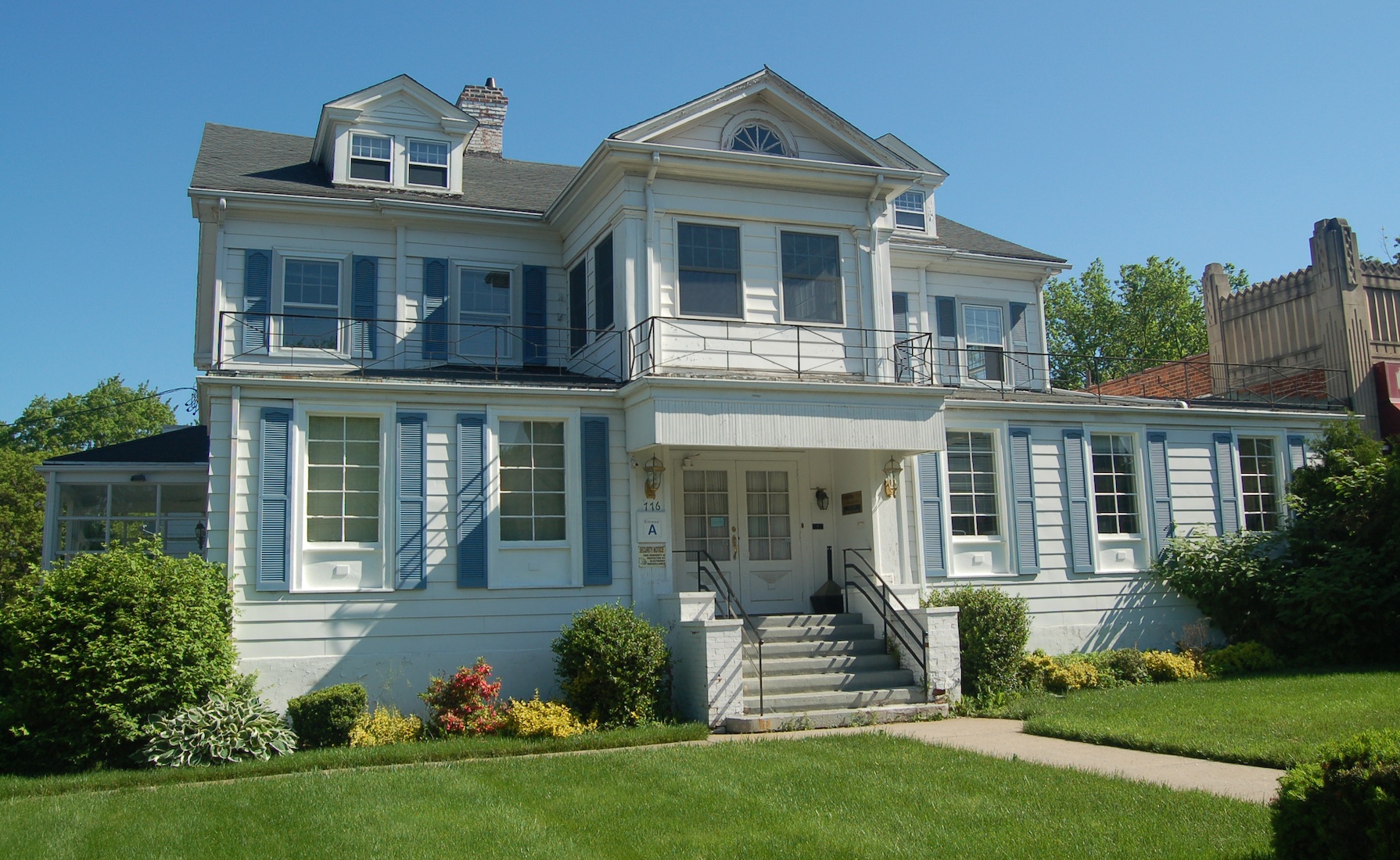From the age of eighteen, he suffered from epilepsy, which his father interpreted as a sign of weakness. "He's a very smart fellow, but he's got a cog out," his father told friends. In 1849, Commodore Vanderbilt sent his son to work as a crewman on a ship headed for San Francisco around Cape Horn. Corneel abandoned the ship when he arrived, ran out of money, and and tried to charge his expenses to his father. This was a sign of insanity to his father, who had Corneel arrested on his return in November 1849 and committed to the Bloomingdale Lunatic Asylum in New York until February 1850 for "dementia."
Cornelius Jeremiah was unsuccessful in several occupations, including law clerk, leather merchant, farmer, and revenue agent. He maintained a costly gambling habit, and used his family name and charm to borrow money from friends and prominent people, very often failing to pay them back. He particularly relied on loans from Horace Greeley, a long-term friend and editor of the New York Tribune.
Corneel's use of his family name to run up debts angered his father, who warned business acquaintances, "There is a crazy fellow running all over the land calling himself my son. If you come into contact with him, don't trust him." On January 1854, he again had his son arrested on the grounds of "confusion" and "loose habits," and Cornelius Jr. was committed to the Bloomingdale Asylum. His doctor there told Corneel, "I am satisfied that you are no more crazy than I am. You may go home." Brother William Vanderbilt told Corneel they were trying to get him committed to avoid criminal charges for forgery. Corneel told him, "I would rather be considered a damn rascal than I would a lunatic."
Despite his difficult relationship with his father, Corneel's friend Henry Clews said that Corneel "had an intense admiration for his father's abilities, and he was as sensitive as a sunflower when any other person would say a word to disparage the Commodore."
In 1856, he married Ellen Williams of Hartford, who was reported by a family friend to have told her father,"I have a divine mission to save that young man." After the marriage, Commodore Vanderbilt, who was fond of his new daughter-in-law, increased his son's allowance.
In 1857, in the hopes of setting up his son with a business, the Commodore bought the 15-acre Hamilton Farm in West Hartford, Connecticut. He sent Corneel to manage the fruit tree farm. Cornelius and Ellen lived in a house that was originally occupied by Rev. Nathan Perkins, and the couple gave lavish parties for prominent guests. Their land, perched above Farmington Avenue, soon became known as Vanderbilt Hill.
In 1867, Corneel filed for personal bankruptcy. In 1872, both his wife Ellen and his friend and financial supporter, Horace Greeley, died. He lost interest in the farm, and Commodore Vanderbilt, who still held the title to the Connecticut property, sold it. Corneel traveled west to Colorado and other states. He unsuccessfully sought a position from his father in the Commodore's railroad enterprises.
In 1876, Commodore Vanderbilt died, leaving the vast majority of his fortune to his son William. Cornelius Jeremiah joined two of his sisters in contesting the will, drawing national press attention, but was unsuccessful. His brother William did increase Corneel's share of the estate.
In 1879, Corneel repurchased the West Hartford, Connecticut property he had left behind and decided to build a large Victorian mansion. The huge, 27-room mansion was chocolate-colored and was surrounded by lawns, gardens, and pastures.
He made a trip around the globe with his friend and physician, Dr. George Terry, in 1880. In February 1882, they traveled to Hot Springs, Arkansas and Florida. In March, they were living in the Glenham Hotel on Fifth Avenue in New York City. Cornelius spent the last evening of his life at a gambling house, and on the afternoon of April 2, he shot himself in the head in his hotel room.
His funeral took place at the Church of the Strangers in New York and his body, accompanied by his brother William, was taken by a special train to be buried next to his wife in the Williams family plot in Spring Grove Cemetery in Hartford.
In the 1920s, the Connecticut house known as the Vanderbilt mansion was demolished to make way for a housing subdivision now known as the West Hill Historic District.
Bio information provided by Mike.
From the age of eighteen, he suffered from epilepsy, which his father interpreted as a sign of weakness. "He's a very smart fellow, but he's got a cog out," his father told friends. In 1849, Commodore Vanderbilt sent his son to work as a crewman on a ship headed for San Francisco around Cape Horn. Corneel abandoned the ship when he arrived, ran out of money, and and tried to charge his expenses to his father. This was a sign of insanity to his father, who had Corneel arrested on his return in November 1849 and committed to the Bloomingdale Lunatic Asylum in New York until February 1850 for "dementia."
Cornelius Jeremiah was unsuccessful in several occupations, including law clerk, leather merchant, farmer, and revenue agent. He maintained a costly gambling habit, and used his family name and charm to borrow money from friends and prominent people, very often failing to pay them back. He particularly relied on loans from Horace Greeley, a long-term friend and editor of the New York Tribune.
Corneel's use of his family name to run up debts angered his father, who warned business acquaintances, "There is a crazy fellow running all over the land calling himself my son. If you come into contact with him, don't trust him." On January 1854, he again had his son arrested on the grounds of "confusion" and "loose habits," and Cornelius Jr. was committed to the Bloomingdale Asylum. His doctor there told Corneel, "I am satisfied that you are no more crazy than I am. You may go home." Brother William Vanderbilt told Corneel they were trying to get him committed to avoid criminal charges for forgery. Corneel told him, "I would rather be considered a damn rascal than I would a lunatic."
Despite his difficult relationship with his father, Corneel's friend Henry Clews said that Corneel "had an intense admiration for his father's abilities, and he was as sensitive as a sunflower when any other person would say a word to disparage the Commodore."
In 1856, he married Ellen Williams of Hartford, who was reported by a family friend to have told her father,"I have a divine mission to save that young man." After the marriage, Commodore Vanderbilt, who was fond of his new daughter-in-law, increased his son's allowance.
In 1857, in the hopes of setting up his son with a business, the Commodore bought the 15-acre Hamilton Farm in West Hartford, Connecticut. He sent Corneel to manage the fruit tree farm. Cornelius and Ellen lived in a house that was originally occupied by Rev. Nathan Perkins, and the couple gave lavish parties for prominent guests. Their land, perched above Farmington Avenue, soon became known as Vanderbilt Hill.
In 1867, Corneel filed for personal bankruptcy. In 1872, both his wife Ellen and his friend and financial supporter, Horace Greeley, died. He lost interest in the farm, and Commodore Vanderbilt, who still held the title to the Connecticut property, sold it. Corneel traveled west to Colorado and other states. He unsuccessfully sought a position from his father in the Commodore's railroad enterprises.
In 1876, Commodore Vanderbilt died, leaving the vast majority of his fortune to his son William. Cornelius Jeremiah joined two of his sisters in contesting the will, drawing national press attention, but was unsuccessful. His brother William did increase Corneel's share of the estate.
In 1879, Corneel repurchased the West Hartford, Connecticut property he had left behind and decided to build a large Victorian mansion. The huge, 27-room mansion was chocolate-colored and was surrounded by lawns, gardens, and pastures.
He made a trip around the globe with his friend and physician, Dr. George Terry, in 1880. In February 1882, they traveled to Hot Springs, Arkansas and Florida. In March, they were living in the Glenham Hotel on Fifth Avenue in New York City. Cornelius spent the last evening of his life at a gambling house, and on the afternoon of April 2, he shot himself in the head in his hotel room.
His funeral took place at the Church of the Strangers in New York and his body, accompanied by his brother William, was taken by a special train to be buried next to his wife in the Williams family plot in Spring Grove Cemetery in Hartford.
In the 1920s, the Connecticut house known as the Vanderbilt mansion was demolished to make way for a housing subdivision now known as the West Hill Historic District.
Bio information provided by Mike.
Family Members
-
![]()
Phebe Jane Vanderbilt Cross
1814–1878
-
![]()
Ethelinda Vanderbilt Allen
1817–1889
-
![]()
Eliza Matilda Vanderbilt Osgood
1819–1890
-
![]()
William Henry Vanderbilt
1821–1885
-
![]()
Emily Almira Vanderbilt Thorn
1823–1896
-
![]()
Sophia Johnson Vanderbilt Torrance
1825–1912
-
![]()
Maria Louisa Vanderbilt Niven
1827–1896
-
![]()
Frances Lavinia Vanderbilt
1829–1868
-
![]()
George Washington Vanderbilt I
1832–1836
-
![]()
Mary Alicia Vanderbilt La Bau
1834–1902
-
![]()
Catherine Juliette Vanderbilt Lafitte
1836–1881
-
![]()
Capt George Washington Vanderbilt
1839–1863
Advertisement
Records on Ancestry
Sponsored by Ancestry
Advertisement
